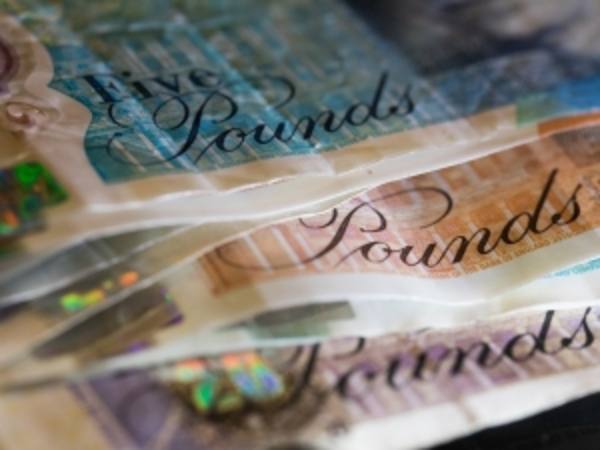Terry is 69 and his wife is 66, and he has been investing for 45 years. He would like to increase the capital value of the portfolio by 2 to 3 per cent, and at the very least protect it against inflation. He wants to pass it on to his children and fund his grandchildren's education, so he hopes to reduce the inheritance tax (IHT) liability as much as possible.
Sipp, Isa and offshore trust
2%-3% capital growth
"We both have full state pensions, as well as my final-salary scheme and my wife's civil service pension which are index linked and total £36,000 a year. Apart from large one-off bills, big holidays and long-term care at some point in the future, this basically satisfies the financial needs of our relatively modest lifestyle.
"Although nominally in both our names, our investments are treated as a single portfolio, particularly the two individual savings accounts (Isas) held with Alliance Trust Savings. Our family house is worth about £500,000 and is mortgage-free.
"My attitude to risk is medium to adventurous and I am prepared to ride out falls of less than 10 per cent. I am a buy-and-hold investor: despite being in retirement I am finding it increasingly difficult to make the time and have the inclination to manage our investments. I know I need to improve my monitoring and be more ready to cut losses.
"I recognise the need to simplify this portfolio with investment trusts and exchange traded funds (ETFs), and cut down the number of holdings. I have noted Chris Dillow's suggestion to a number of participants in the Portfolio Clinic that they buy a global ETF, but these have a high allocation to the US and I am worried that this market is due for a fall.
"Also, our significant allocation to Alliance Trust (ATST) and Witan Investment Trust (WTAN) are partially a proxy for this, albeit with higher fees.
"The offshore trust was suggested as a way to reduce IHT. But the fees and dealing costs are high and I feel it has too many holdings. Although the overall performance after nearly four years has been reasonable, there are a couple of real dogs in there which are now worth less than the initial cost, even if you add in the interest and dividends received.
I have on my watchlist Scottish Mortgage Investment Trust (SMT) and iShares Edge MSCI World Minimum Volatility UCITS ETF (MVOL).
Terry and his wife's portfolio
| Holding | Value (£) | % of portfolio |
|---|---|---|
| Isas | ||
| Aberdeen Asian Smaller Companies Investment Trust (AAS) | 22,796 | 1.52 |
| Alliance Trust (ATST) | 151,516 | 10.1 |
| BT (BT.A) | 83,182 | 5.55 |
| Lloyds (LLOY) | 14,244 | 0.95 |
| Personal Assets Trust (PNL) | 32,410 | 2.16 |
| Royal Dutch Shell (RDSB) | 85,396 | 5.7 |
| Vanguard FTSE Emerging Markets UCITS ETF (VFEM) | 35,776 | 2.39 |
| Vodafone (VOD) | 25,569 | 1.71 |
| Witan (WTAN) | 61,415 | 4.1 |
| Aviva (AV.) | 29,457 | 1.96 |
| City Natural Resources High Yield Trust (CYN) | 11,727 | 0.78 |
| GlaxoSmithKline (GSK) | 47,980 | 3.2 |
| National Grid (NG.) | 72,940 | 4.86 |
| Royal Bank of Scotland | 2,177 | 0.15 |
| Segro (SGRO) | 28,023 | 1.87 |
| TT Electronics (TTG) | 32,406 | 2.16 |
| Cash | 34,816 | 2.32 |
| Sipp | ||
| Blackrock Smaller Companies Trust (BRSC) | 6,831 | 0.46 |
| British Empire Trust (BTEM) | 14,492 | 0.97 |
| New City High Yield Fund (NCYF) | 20,232 | 1.35 |
| Ecofin Water & Power Opportunities (ECWO) | 11,698 | 0.78 |
| Edinburgh Dragon Trust (EFM) | 16,325 | 1.09 |
| RIT Capital Partners (RCP) | 19,513 | 1.3 |
| Ruffer Investment Company (RICA) | 15,491 | 1.03 |
| Scottish Oriental Smaller Companies Trust (SST) | 13,860 | 0.92 |
| Templeton Emerging Markets Investment Trust (TEM) | 13,508 | 0.9 |
| UK Commercial Property Trust (UKCM) | 19,363 | 1.29 |
| Cash | 2,692 | 0.18 |
| Outside tax wrapper | ||
| Rolls-Royce (RR.) | 6,358 | 0.42 |
| Standard Life (SL.) | 7,967 | 0.53 |
| Cash outside tax wrappers | 40,000 | 2.67 |
| Offshore trust | ||
| Black Rock European Dynamic (GB00BCZRNN30) | 9,427 | 0.63 |
| Invesco Perpetual Corporate Bond (GB00BJ04F877) | 28,104 | 1.87 |
| Axa Framlington UK Select Opportunities (GB00B7FD4C20) | 27,339 | 1.82 |
| Baillie Gifford American (GB0006061963) | 23,868 | 1.59 |
| M&G Corporate Bond (GB00B1YBRM66) | 24,285 | 1.62 |
| M&G Recovery (GB00B4X1L373) | 17,155 | 1.14 |
| Threadneedle American (GB00B7T2FK07) | 24,138 | 1.61 |
| Axa Framlington American Growth (GB00B5LXGG05) | 26,814 | 1.79 |
| Man GLG Corporate Bond (GB00B0118851) | 15,278 | 1.02 |
| Old Mutual Global Strategic Bond (GB00B1XG8J69) | 13,154 | 0.88 |
| Stewart Investors Asia Pacific Leaders (GB0033874768) | 7,427 | 0.5 |
| Royal London UK Equity Income (GB00B3M9JJ78) | 24,008 | 1.6 |
| Legal & General UK Property (GB00BK35DT11) | 6,750 | 0.45 |
| Baring Strategic Bond (GB00B8DF1J32) | 28,352 | 1.89 |
| Fidelity Moneybuilder Income (GB00B3Z9PT62) | 24,216 | 1.62 |
| Invesco Perpetual Income (GB00BJ04HX60) | 23,125 | 1.54 |
| Aberdeen Asia Pacific & Japan Equity (GB00B0XWNK36) | 9,158 | 0.61 |
| Premier UK Money Market (GB00B8HDQ548) | 8,806 | 0.59 |
| Cash | 17,800 | 1.19 |
| Tax sheltered cash | ||
| Cash Isas | 100,000 | 6.67 |
| National Savings & Investments products | 60,000 | 4 |
| Total | 1,499,364 |
THE BIG PICTURE
James Norrington, specialist writer at Investors Chronicle, says:
You are in a strong financial position although wise to consider contingencies for potential care needs in the future.
The equity portion of a portfolio risks periodic losses of 20 or 30 per cent - in the financial crisis of 2008-09 MSCI World Index more than halved in value. You have financial capacity and the time to accept this risk as a trade-off for potentially higher returns in the long-run.
As you have no immediate income needs the portfolio can be run for total returns, and dividends reinvested to compound growth. With compounding it should be possible to meet your sensible target of 2-3 per cent above inflation without taking on too much risk.
The performance of your trust might not be spectacular, but it is solid and doesn't require much management. It will also help to reduce your estate's IHT liability.
Last year Investors Chronicle published two articles outlining some of the options for mitigating IHT. But the rules on IHT are complex and you should consult a tax professional for a full explanation.
Danny Cox, chartered financial planner at Hargreaves Lansdown, says:
The main components of your estate for IHT purposes are your house worth £500,000, and portfolio and cash worth £986,000. Your chattels (personal possessions) are counted in this as well.
If your wills are typical on the first death when everything passes to the other spouse no IHT is incurred. When the second spouse dies the nil-rate band of the IHT threshold unused on the first death can be used by the estate of the second spouse, so a combined £650,000 is free from IHT.
The remaining taxable part of the estate is taxed at 40 per cent, assuming no charitable legacies. This leaves £836,000 taxed at 40 per cent, meaning £334,400 IHT is payable.
A new main residence nil-rate band will allow you and your wife to leave more to your descendants free of tax. Phased in from April 2017, by 2020, up to £350,000-worth of your family home - 2 x £175,000 - can be left tax-free to your descendants. Add this to the normal nil-rate bands and £1m of your estate will be IHT-free. Of course by 2020 your estate should have grown further in value.
If your Sipp passes as cash to your wife, although tax-free on your death, the money adds to her estate and potentially adds a further £61,600 to the IHT liability. Rather than nominate your wife, you should nominate your children to receive the value of your pension fund, as this will be entirely tax-free. This assumes your wife has sufficient income from pensions and investment income.
Since the Sipp is potentially an IHT-free pot of money, defer drawing any income or capital. If you need income, take it from the Isa portfolio which is lifetime taxes free but IHT taxable.
The annual gifting allowance gives you and your wife the opportunity to pass on £3,000 a year of capital with no IHT consequences. These gifts are relatively small in the overall scheme of things, but will help slow down the rate at which the tax will be paid in future.
You are also allowed to make unlimited regular gifts from surplus income as long as they do not impact your standard of living. You and your wife are meeting your normal expenditure needs via pensions and seem to only need to access your portfolio occasionally. This suggests you could make further, large gifts which would fall outside of your estate for IHT purposes after seven years. The key here is to not give away too much as your portfolio is intended to cover certain situations. For every £100,000 you give away now, there will be a £40,000 IHT saving after seven years plus no IHT on the growth after the gift.
If you are unhappy with the fees on your trust you could make direct gifts of cash. Alternatively use products such as Junior Isas for grandchildren, and/or pay into pensions for children and grandchildren, and from 17 April next year the Lifetime Isa for the under 40s, choosing low-cost varieties.
If you make further gifts into trusts be careful as to how the original gift into trust was made. Gifts over £325,000 into trust over a seven-year period will create an immediate tax charge. The gift may need to be made by your wife.
The taxable cash should also be sheltered in an Isa: despite the new personal savings allowance providing a tax-free savings allowance, using an Isa means never having to worry about income tax on the interest.
There are two ways to minimise the time you spend managing the portfolio: a discretionary manager, who would make all the decisions for you, or using more funds, which provide greater diversification, and are more suited to buying and holding.
Passive funds are a lower-cost option. You say you prefer investment trusts to funds, but fund pricing has fallen in recent years and the cost differences are minimal now.
Petronella West, director, private clients at Investment Quorum, says:
You may wish to consider making use of the various IHT exemptions such as the £3,000 per person annual exemption. If you do this for the first time, you can actually use the previous years' allowance as well, thereby getting £6,000 each out of your and your wife's estate from year one. Done annually over 10 years this could get up to £66,000 out of the estate, saving £26,400 of IHT.
There is also the small gifts exemption of £250 each, which can be given to as many individuals as you like, excluding those who may have benefited from the annual exemption.
The offshore trust is presumably held in an offshore bond, and if you are taking out the 5 per cent a year withdrawals, these are not regarded as income for IHT proposes but a return of the original capital invested.
It should be relatively easy to buy and sell funds within an offshore bond allowing you to move to lower-cost investments that may perform better.
HOW TO IMPROVE THE PORTFOLIO
James Norrington says:
If you want to make your portfolio easier to manage collective investment vehicles make sense. There are passive smart beta ETFs that have tilts to companies with a similar profile to those you have bought shares in. As well as iShares Edge MSCI World Minimum Volatility UCITS ETF there are funds that target quality factors, such as good cash flow and sustainable debt positions, and dividend yield. As you say, American stocks make up nearly two-thirds of MSCI World Minimum Volatility Index but there are factor ETFs that focus specifically on other regions such as Europe, the UK and Japan. Our IC Top 50 ETFs list is a good place to start looking.
Your Witan and Alliance Trust holdings give you some international equity diversification, but you could consider ETFs and other investment trusts to gain exposure to other assets such as corporate bonds, property and private equity to spread the risk of investing in shares. You could also always hold more cash in uncertain times.
You are invested in the US stock market through Alliance Trust, which has about 45 per cent of its assets in it. Although the US is expensive by many measures it is a hugely important market, so it is reasonable for a long-term investor to have some exposure. Getting this via a global fund seems sensible.
Petronella West says:
Stock markets are very volatile, with many global issues and events making it quite difficult to keep pace with portfolios and strategies. Holding direct equities adds risk so you might want to review this as it will be important for you to spend more time analysing those positions to ensure they are compatible with your risk profile.
Collective funds such as open-ended investment companies (Oeics), investment trusts or ETFs allow you to spend much more time on asset allocation, and it is generally accepted that this accounts for more than 90 per cent of overall returns.
Given you're looking for a real annualised return of between 2-3 per cent a year we would suggest a growth and income strategy - especially in the current low growth, inflation, and interest rate environment.
You may wish to introduce funds such as TB Wise Evenlode Income (GB00B40Y5R17), CF Woodford Equity Income (GB00BLRZQB71), Fidelity Global Dividend (GB00B7778087), Aviva Investors Multi-Strategy Target Return (GB00BMJ6DT26) and Fundsmith Equity (GB00B41YBW71).
You could finance this by selling down some of your direct equities, and funds such as M&G Recovery (GB00B4X1L373) Threadneedle American (GB00B7T2FK07), Invesco Perpetual Income (GB00BJ04HX60) and Old Mutual Global Strategic Bond (GB00B1XG8J69).










